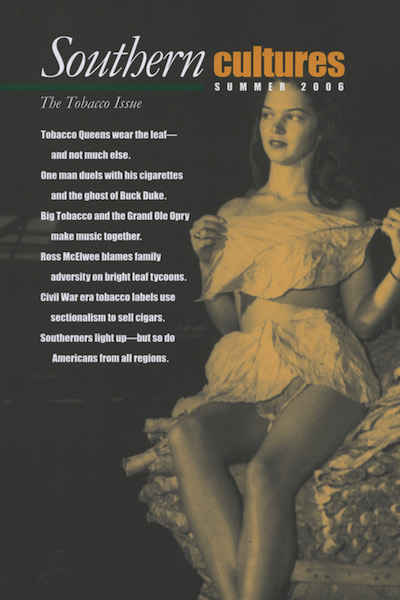“It’s not necessarily that we want tobacco; tobacco wants us.”
The last tobacco queen is having a rough morning. She’s struggling to complete her thought that “everybody’s gonna die of something, so . . . might as well die of something that’s going to help out the . . . what’s the word?” The filmmaker, the voice behind the camera, offers a suggestion: “Is it the economy?” They both understand the problem of dependence—physical, psychological, or financial—on a dangerous, disagreeable product. The beauty queen’s hometown depends on the revenue tobacco brings, but its annual Tobacco Festival is soon to be renamed the “Farmers’ Day Parade.” This sort of quandary shapes Ross McElwee’s powerful, problematic documentary, Bright Leaves. A North Carolina native and maker of the acclaimed Sherman’s March, McElwee produces profound, slow-moving meditations on family and place, history and identity, personal and philosophical voyages alongside physical journeys through the region. This time around, he takes his audience through North Carolina’s tobacco economy, and while his gaze meanders, he doesn’t blink. He captures ambivalence, but the dual structure within which he confines it, the comparison he always draws, sacrifices the complexity of history in favor of family lore. The film ultimately frustrates as a home movie might—a revealing tidbit for outsiders that orders its own secret insights down well-worn, too-familiar paths.


